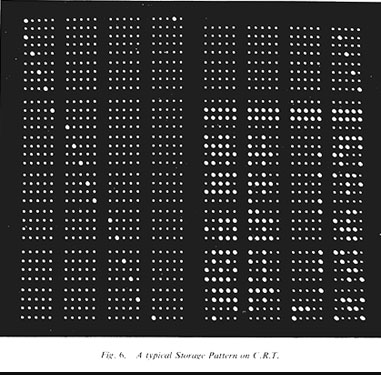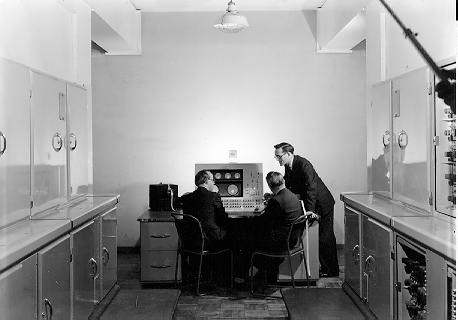1 A CRT display from the Ferranti Mark 1


This display shows the contents of the PERM page (page 2) in a program running under Scheme A.
Although a CRT storage tube used an array of phosphor spots to store
information, it could not in general be used to observe its current set of
values, as the screen would be covered by a pick-up plate (to "read" the values)
and the whole tube would be contained in a metal box to screen it from outside
electrical interference. So display tubes were provided to show the current
state of a selected storage tube, but laid out in a more useful way for
viewing. (See display
detail.)
Index

This is the first Ferranti Mark 1, installed in the new Computing Machine
Laboratory at the University in 1951. Sitting at the console is
Keith Lonsdale (right) and B.W. (Brian)
Pollard (left). B.W. Pollard was a key member of Ferranti working on the
Ferranti Mark 1. (Unfortunately, due to some misunderstandings, he was not
invited in time to come over from the US for the Celebrations.)
Index

The two larger CRT displays could be switched to show the current contents of
any of the 8 pages. The four smaller displays (presumably) permanently showed
the current contents of the four auxiliary tubes, A (80-bit Accumulator), B
(8 20-bit B-lines), C (Control Address and Present Instruction) and D (current
multiplicand value). See the next picture and comment for the Input/Output
equipment.
Index

The Input medium was a 5-hole paper-tape reader (left) and a teleprinter and
5-hole paper tape punch (right).
Index

Seated again are Brian Pollard and Keith Lonsdale.
Index
